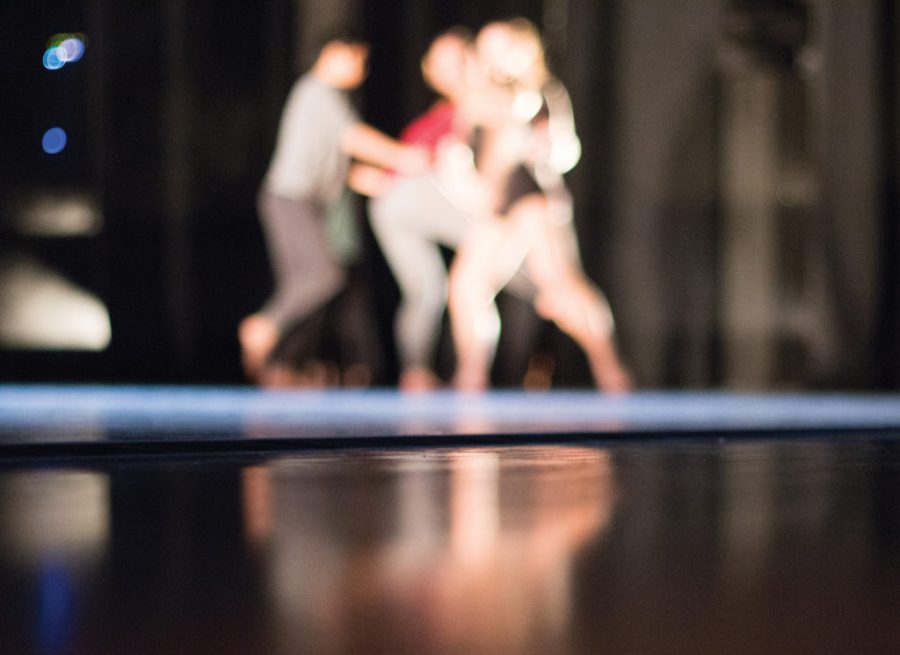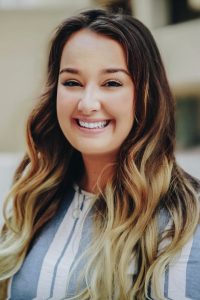Performing Arts Classes Adapt Again for the Fall Semester, Students Respond
August 27, 2020
Less than 25% of fall semester classes are being offered in-person, according to a broadcast given by the University of Utah administration, and among those classes, several are performing arts. For classes that do require in-person attendance, many requirements are in place to ensure student and faculty’s health and safety requirements that have caused difficulty for some departments.
According to the School of Dance’s website, students will be designated a specific place or a 10×10 marked square to minimize shared contact. Students are also to minimize their personal belongings they have with them, keeping the belongings within the designated “spot.” Additionally, in order to maintain social distancing for in-person studio classes, the maximum number of dancers allowed in each studio at a time is 24.
Allison Schuh, an undergraduate student in the modern dance program, said she felt a great deal of excitement at the prospect of returning to a dance studio.
“It’s been really hard to be almost disconnected from dance… Taking online dance classes can be really deeply unsatisfying,” Schuh said.
In addition to the studio guidelines, building flow patterns are in place to ensure social distancing, as well as staggered class start and end times.
Schuh also looks forward to the potential growth the COVID-19 requirements could bring.
“As artists, we are built to adapt, built to see things in new ways and see things from new perspectives… Having some sort of construct or rules to follow can be a really great movement prompt,” Schuh said.
She trusts in her professors to deliver high-quality education and experiences despite current restrictions.
“(In March), every single professor stepped up and really was supportive in every way that they could, and were giving so much of their time to develop an online curriculum… I have no fear that they will be backing out or stepping down in any way, shape or form,” Schuh said.
The theatre department formed a safety committee in June to address coronavirus-specific concerns within the department.
“We wanted to try to determine how we can achieve learning outcomes and mitigate risk and teach within the safety protocols as set by the university, but also with our own unique needs across the board for all of our different types of classes,” said musical theatre professor David Eggers.
Like the dance department, designated spaces are in place for performance classes to ensure students are distanced. For classes taught online, such as monologue classes, professors have worked all summer to find ways to creatively and actively engage students.
Eggers said the safety committee feels confident they’ve worked closely with all the faculty in all the department’s different practices and areas in order to arrive at their objectives and learning outcomes for all classes.
“That’s the gold standard – we want to continue to give our students the training that they are coming to the university for,” Eggers said.
Eggers also sees the COVID-19 restrictions as a way to sharpen performance skills.
“(Being masked at all times) will require us to listen better, enunciate better, and use our body language more to tell stories when it comes to the acting, the singing, and the dancing,” Eggers said.
Eggers said even though the faculty has had continual meetings and taken classes all summer in order to ensure students’ safety and the highest quality of education possible, he expects to be adjusting throughout the semester to address any challenges that arise.
“For as much work as we’ve done for our students in our department, they need to meet us halfway, so hopefully we can impart on them a sense of good citizenry… Being an artist requires that you have self-awareness anyway, in terms of taking care of your body, because your body is your instrument. … That is something we’ve always tried to speak to our students about, which is even more important now,” Eggers said.








